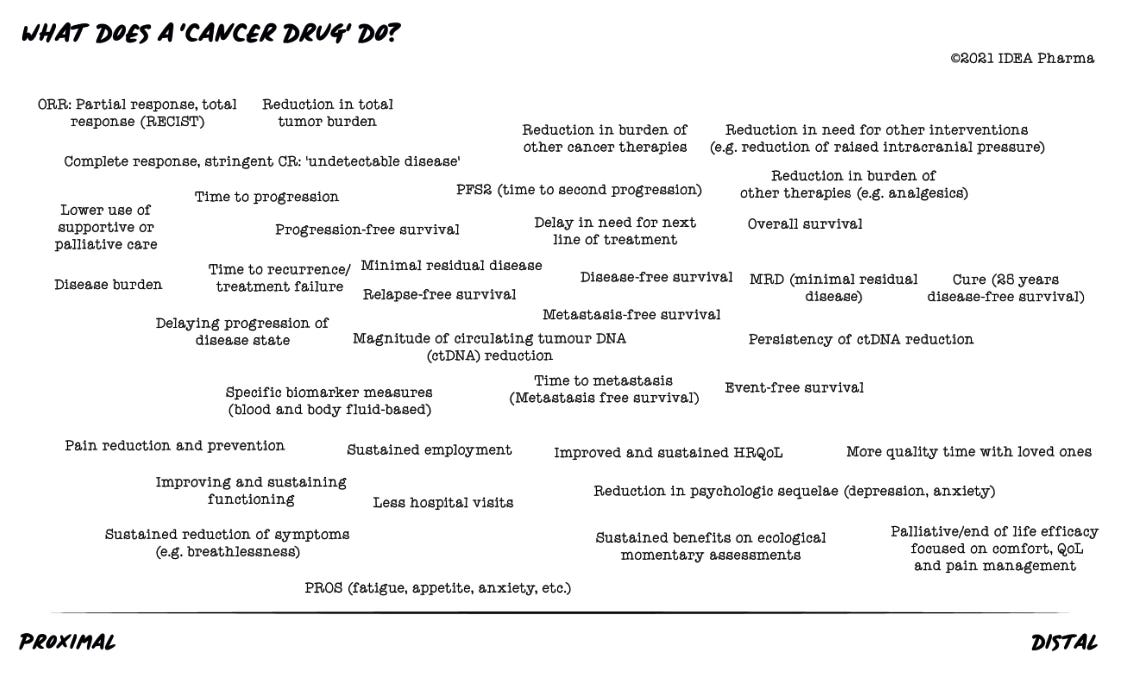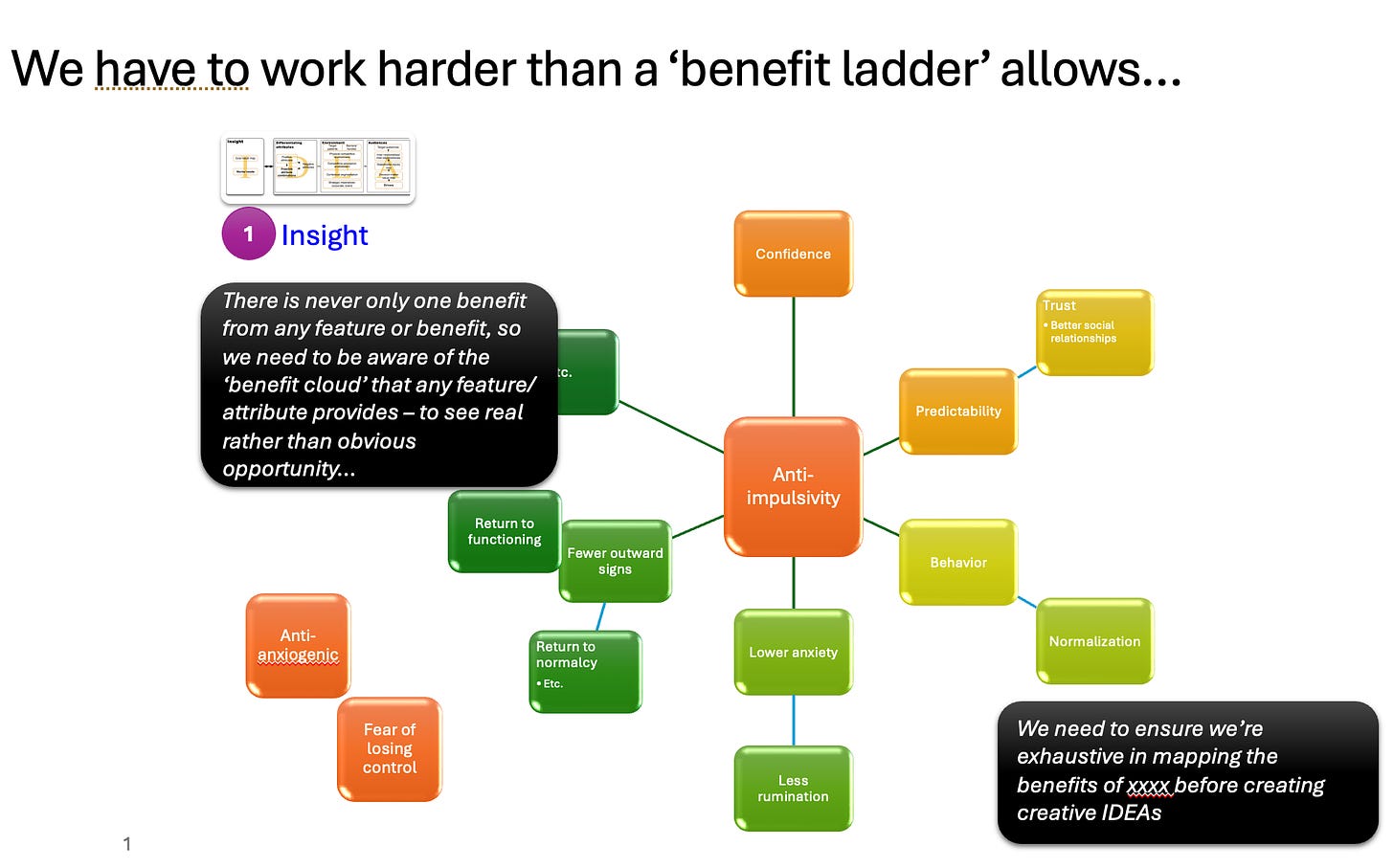One way to gain a learning advantage is to increase the complexity of the problem, or the substrate of the problem.
The term "problem rich environment" refers to a setting or context that is abundant with challenges or issues that need to be addressed. Such environments can be found in various fields, including education, business, and technology, where complex, multifaceted problems are prevalent and require innovative solutions.
The concept of a "problem rich environment" is often associated with educational theories and practices that emphasize critical thinking and problem-solving skills. It encourages learners to engage with real-world problems, fostering a deeper understanding and application of knowledge.
In our work, we typically start to unpack ideas like ‘efficacy’ into what we at IDEA used to call an ‘efficacy wheel’ - now more typically presented as an environment full of challenge, or opportunity.
For example, if you were to ask us what a cancer drug ‘does’, or what is ‘efficacy’ for a cancer drug, we’d prefer to start with an environment that looks like this:
Or, for example, even in an area like ‘impulsivity’ within mental health disorders:
The advantage of such a problem rich environment is that the ideas can be more specific, and therefore more meaningful, than ideas addressed at a vague top level. The horror we show when someone talks about ‘perfect balance of efficacy and tolerability’ can be understood when these kinds of complexity are captured. If it doesn’t mean ‘all of it’, the viewer is left to interpret for themselves - so why even say it in the first place - if the opposite of what you said sounds stupid, chances are that what you just said sounds just as clueless to your audience too.
In this cancer example, it allows us to investigate drivers that are more proximal and distal, more emotional or more rational, and all the areas in between. At the level above, none of those insights are possible. The chance that your drug might be better, or the best, at any one of them, increases when you start at this level - certainly the chance that the belief that your drug might be better, or the best, increases when you pick something more specific.
That is the opportunity in asymmetry - using your approach to learning as a way to approach differentiation and the power of your positioning.



